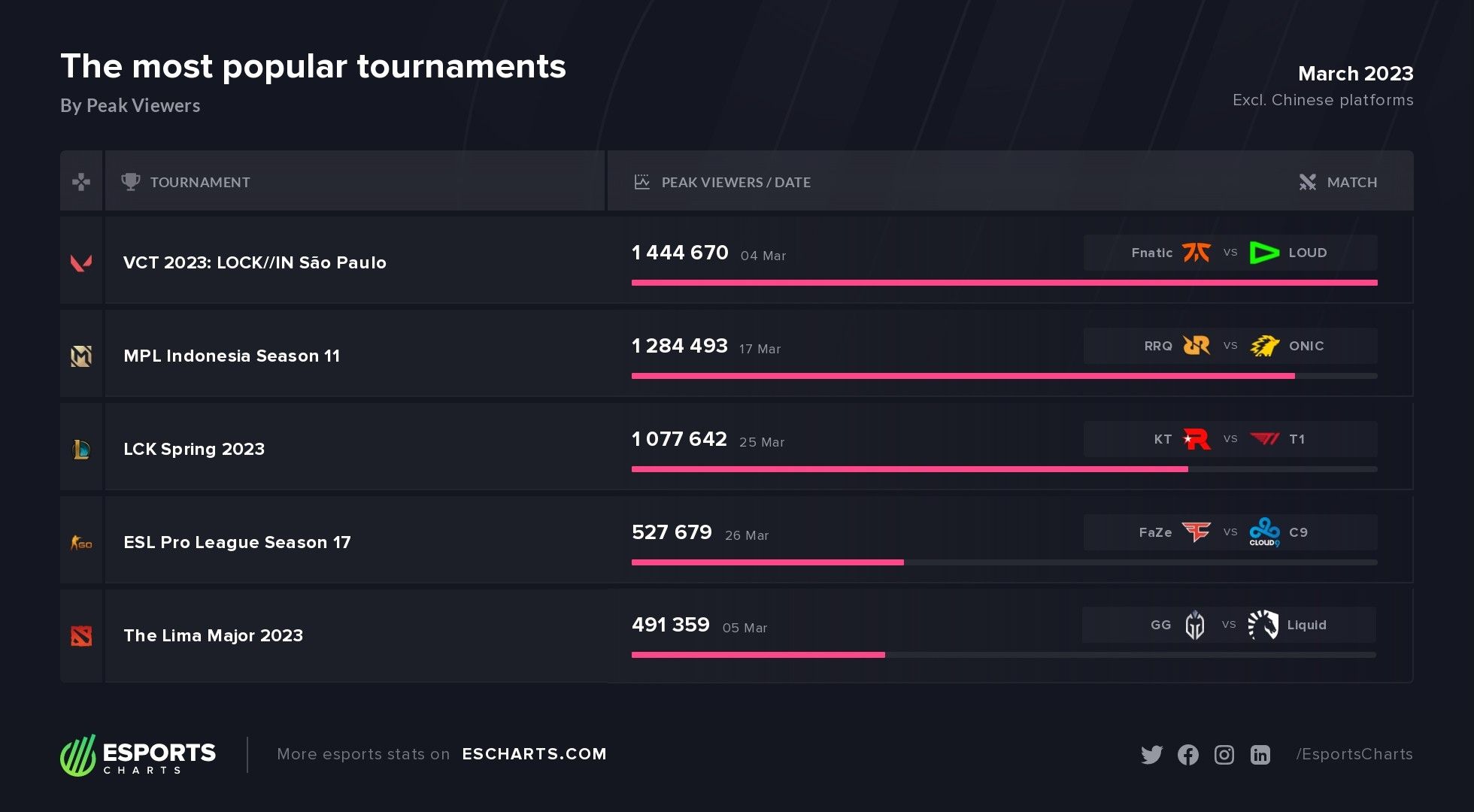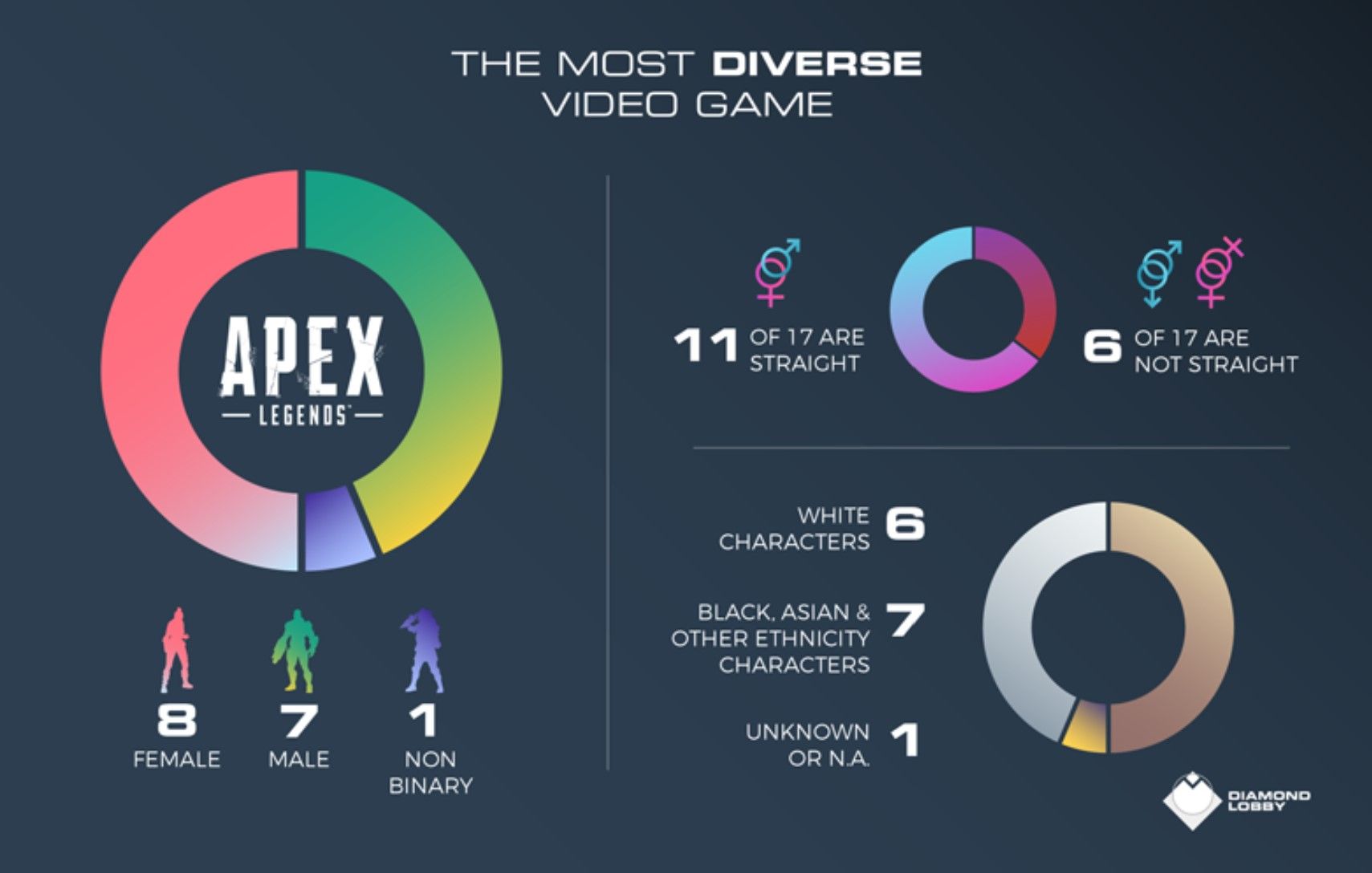May 5, 2023
As a gamer and a data analyst, I like to understand the significance of player engagement in the gaming ecosystem. In this article, we will delve deeper into the dynamics of player engagement in esports and gaming, the various factors that contribute to it, and why it’s crucial for the growth and sustainability of the industry.
Player engagement refers to the level of emotional investment, interactivity, and involvement that a player has with a game or an esports event. It’s the glue that binds players to the game and creates a sense of belongingness. To build and retain a dedicated player base, foster a loyal and active community, and generate revenue for the industry, game developers, publishers, and organizers must prioritize player engagement.

Credit: Esports Charts
Gameplay is one of the most critical factors that influence player engagement. Gameplay mechanics should be intuitive and easy to learn, but challenging to master. Players should feel rewarded for their efforts and accomplishments, which keeps them engaged and motivated to keep playing. They should also have a sense of progression and accomplishment, which gives them a sense of pride and achievement. A game lacking these elements will fail to keep players engaged and quickly lose its appeal.
In addition to gameplay, community building is another essential aspect of player engagement. Players should feel connected to the game and the community that surrounds it. This can be achieved through various means, such as in-game chat, forums, social media, and events. This interaction leads to a sense of investment and ownership, making players more likely to stay engaged.
 Esports can also drive player engagement by providing players with a chance to compete against others and display their skills. It also allows players to watch and learn from the best players worldwide. Esports brings players together as they form teams and compete against each other. It offers opportunities for players to gain recognition, make a name for themselves, and even earn a living. Additionally, esports generates revenue for the game, which can be used to improve gameplay and community building.
Esports can also drive player engagement by providing players with a chance to compete against others and display their skills. It also allows players to watch and learn from the best players worldwide. Esports brings players together as they form teams and compete against each other. It offers opportunities for players to gain recognition, make a name for themselves, and even earn a living. Additionally, esports generates revenue for the game, which can be used to improve gameplay and community building.Representation is another crucial factor that contributes to player engagement. Games and esports should provide equal opportunities for all players, regardless of gender, race, or ethnicity, to compete and showcase their skills. Representation in games can lead to increased player engagement, as players can identify with characters that represent them. It also fosters a sense of community, as players can connect with others who share their backgrounds and interests.

Credit: Diamond Lobby
It’s worth noting that player engagement is not a one-size-fits-all concept. Different players have varying degrees of engagement and motivations for playing games and esports. Therefore, developers and organizers must understand their target audience and tailor their offerings to their needs and preferences.
Player engagement is not static but is influenced by external factors. For instance, releasing new content, updates, and features can keep players engaged and excited about the game. A lack of updates or development can lead to player disengagement and churn.

Players should feel invested, involved, and connected to the game and the community surrounding it to foster a strong and dedicated player base. When players feel a sense of ownership and attachment to a game, they are more likely to continue playing, recommending it to others, and participating in community events.